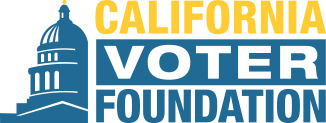No one is an expert on every subject
Excerpt:
No one is an expert on every subject.
And yet, California’s political process frequently calls upon voters to weigh in on complex issues concerning criminal justice, public health, economics, the environment, just to name a few.
The good news is, voting is not a test, says Kim Alexander of the California Voter Foundation. If you skip boxes on the ballot, you will not get an “F” in voting.
Alexander is beating the drum on encouraging people to vote.
“People don’t like to do things they feel they’re not good at,” she said. “I worry people feel they’re not good at voting.”
Faced with a long list of propositions with implications they don’t fully grasp, some voters’ impulse is to vote no, which is something critics of California’s direct democracy process advise as a way of voicing disapproval of it.
But that could backfire on you, Alexander said. Voting no on a proposition sometimes actually means you are voting yes on an issue (and vice versa). As in Prop. 67, which is a referendum on California’s plastic bag ban. You might think you need to vote yes to get rid of the bag ban and no to keep it, but since you are actually voting on the law banning the bags and not the ban itself, a yes vote means keeping the bag ban.
“Worse than not voting at all, is voting one way thinking you’re supporting something when you’re not,” Alexander said.
The California Voter Foundation site and Alexander’s blog highlight resources to help voters feel more confident about their vote and understanding the issues, with links to various resources.
Political campaigns tend to be rife with doomsday predictions, utopian promises and hyperbole designed to play on voters’ emotions. Alexander’s number one tip for penetrating the smokescreens is to follow the money. Looking at who is backing a proposition or candidate can give voters a hint as to the motives behind the messages. Clues are often right out in the open on the poster or in the text of the commercial, in accordance with the truth in committee naming law.
Californiachoices.org features a simple grid of entities and organizations lined up with the propositions, so voters can see who supports what. To go a little deeper, votersedge.org offers a wealth of information individually tailored to voters by a zip code search.
If you are still thoroughly confused and overwhelmed and prefer to spend your time playing Pokémon Go or watching the Kardashians, there are those who will support you in that as well.
Author Bryan Caplan, in his 2007 book “The Myth of the Rational Voter” claims that voters are worse than ignorant, they are irrational and lack the necessary understanding of economic policy that would make their votes a force against damaging policies. From time to time, someone or other, influenced by views like these, proposes some form of voting test. So far, these proposals haven’t gained much traction, possibly because of their unfortunate resemblance to Jim Crow laws in the South, where literacy tests were used as a tool to prevent minorities from voting.
But as for now, it’s up to voters to do their due diligence to use their votes wisely. And to that end, if voters feel unconfident of their knowledge of an issue or candidate, it is okay to skip that ballot item.
The California Voter Foundation would like to see a box to skip a contest as a ballot option, but as it would cost more and make ballots longer, that is probably not going to happen.
In the meantime, because she feels for the confusion of voters faced with 17 propositions, Alexander has written a song. “The Proposition Song” provides a quick, light-hearted look at what each proposition involves. (full story)

